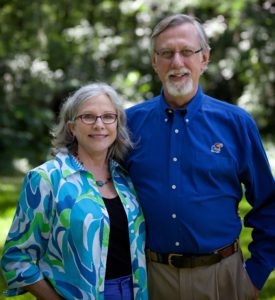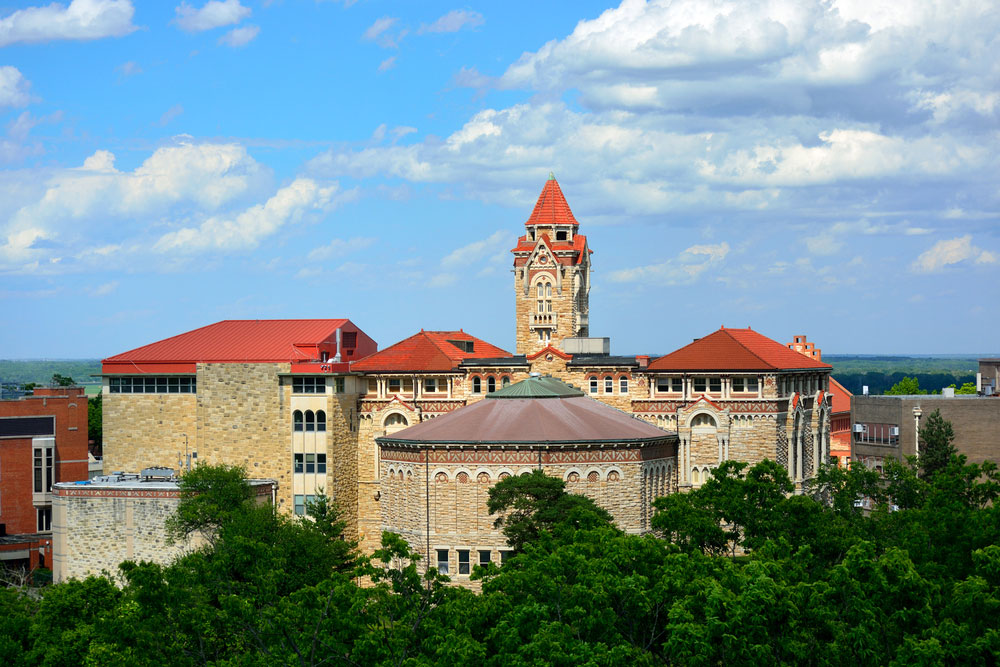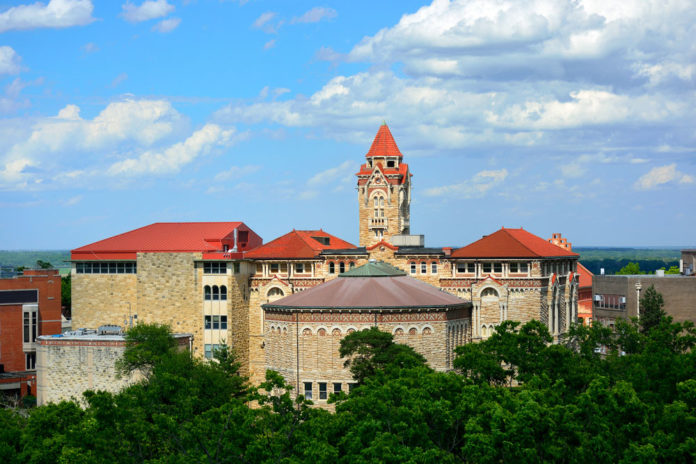The University of Kansas (KU) in Lawrence has established a new center focused on addiction treatment research with the assistance of a $2 million donation.
The Cofrin-Logan Center for Addiction Research and Treatment is named after its donors, KU alumnus Dr. Daniel Logan and his wife Gladys Cofrin. Logan currently serves as a professor at the University of Florida’s College of Medicine and Cofrin is a retired psychotherapist.
“Our hope is that we can contribute to finding those things that are effective, in terms of inducing remission and sustaining remission for people who have substance use disorders,” Logan said.
Dr. Richard Yi, a professor in the Department of Psychology, will serve as the Cofrin-Logan Center’s director. He explained that the center is developing relationships with community organizations as well as the university’s medical center located in Kansas City.
“We’re going to be a centralized location for information about resources in the community,” Yi said. “These collaborations that we develop are going to result in both research and treatment opportunities. What I really want to emphasize — because we are doing both research and treatment, particularly in an academic setting — is that the treatment that our center will be typically involved in will be evidence-based.”
Cofrin also highlighted the importance of offering research-based addiction treatment options that will help address the link between addiction and mental health issues.
“One of the questions is ‘how do you help an individual person who may have two co-occurring mental illnesses?’” she added. “You may have addiction and then you may have depression or anxiety. So, trying to find effective [treatment] modalities is complicated.”
While there are many operations occurring at the center, addiction treatment plans will be announced later this fall. Logan and Yi anticipate that outpatient and counseling services may be offered in the near future.
In addition, the center will serve as an academic hub for KU students.
“We want it to be, particularly for students, a mutually beneficial relationship,” Yi said. “[We hope] they are able to get the great research and potentially clinical experiences by virtue of being a part of our center and then we obviously benefit from their enthusiasm, energy, and the work they are able to do. We want students to be involved and really want them [coming] from all the disciplines for which addiction is relevant.”
Logan added that there are also opportunities to collaborate with KU’s athletics department and student mental health services.

KU Endowment manages the funds that will be directed to the center annually based on progress reports. Additional funding will be sought through grant applications and other avenues.
Cofrin and Logan expressed their gratitude for the leadership and support of Yi and the university’s interim provost and executive vice chancellor Carl Lejuez.
One of Yi’s goals is for the center to be recognized as a prominent addiction treatment and research resource in the state and across the U.S. within five years.
Cofrin and Logan also hope that the center will offer the same level of support they received while going through addiction recovery and help reduce the stigma associated with addiction.
“My life is so much better in recovery than I had ever even imagined,” Logan said. “Fortunately, there were people who cared about us at critical times. We’re hoping that’s part of what the center will be — to carry that message that there’s hope, that we’re not going to give up on you. We want to see people be successful in their recovery and have a good life.”
“When you’re in a crisis you have incredible opportunity for change as well as the significant danger,” Cofrin said. “Because if you go the wrong way, you may crash. But you also are vulnerable enough to allow someone in there to help you make changes that might save your life.”

















